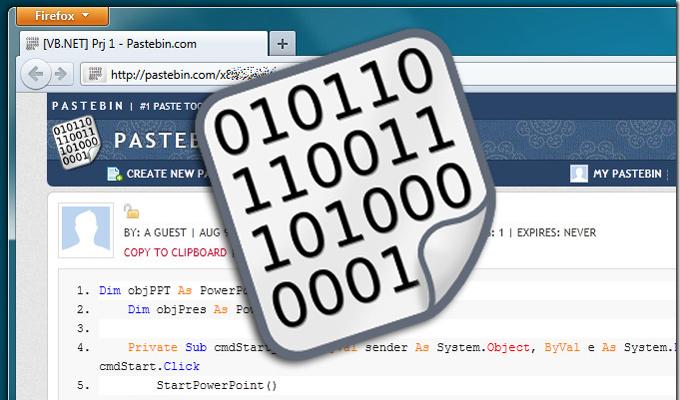Pastebin is a website where users can share plain text via public posts called "pastes." The site now has 17 million unique monthly visitors. What is its attractiveness, and where did it emerge? Since the original Pastebin was brought in the year 2002, many similar web applications known as "paste sites" have emerged. Pastebin was created in response to user activity on the Internet Relay Chat (IRC). IRC is an instant messaging service that debuted in 1988. It's intended for a large user base to communicate in real-time and is popular for sharing plain text, including source code blocks.
Direct codesharing in IRC channels (and other several messaging applications) interrupts in the flow of messages and has the potential to alter the code itself. Users need a third-party website where they can share plain text blocks as a link so that other users can easily access and edit them. While Pastebin is mostly used for harmless text-sharing, they have also become a popular platform for illegal activities such as data leakage.
What do people use Pastebin for?
The most common application of Pastebin is for sharing source code or configuration data. The following are some common Pastebin uses:
- As an alternative to using Google Docs to share text files,
- Twitter users who share updates that exceed the 140-character limit often tweet a paste link to the full text.
- Uploading source code for sharing, review, or collaboration
- Spam/site promotion
- Republishing text that has been taken down from other websites
- Sharing dark web links
- Making public data breaches and other sensitive information

How Do The Bad Guys Use Pastebin?
Paste sites have a stigma about them, sometimes for valid reasons and sometimes for no reason at all, just as "all pawn shops" do. After being shut down due to a Hotmail data breach, Pastebin was sold to its present owner, Jeroen Vader, in 2009. Pastebin's ability to share large text files without requiring user registration while maintaining anonymity via a VPN is exactly what many adversaries look for in a paste site.
There is also a necessity for users to report any type of abuse, which means that adversaries are not always flagged or removed, allowing black hat hackers to share stolen data easily and anonymously. The deep web hosts Pastebin and other similar sites. This means that they can be seen in a standard web browser, but the details are not indexed by Google or other regular search engines. To find specific content, users must utilize the site's internal keyword search tool or obtain paste links directly from other users.
What Type Of Data Has Been Leaked On Pastebin?
Not all of the Pastebin leaks have made headlines, but here are a few that have. Those are as follows:
Google vs. Facebook
Pastebin received the most traffic in May 2011 after a user posted email correspondences between a Facebook-ruined PR agency and Chris Soghoian, an internet security blogger. In these messages, the agency refused to reveal their client at the time, Facebook, and instead pitched an anti-Google piece aimed at disrupting their privacy standards.
Infragard
The user base of Ingragard, an FBI affiliate in Atlanta, was leaked by the hacker group LulzSec. They shared 180 of the user's logins on Pastebin, exposing their credentials and email communications that revealed highly specific and sensitive intelligence about planned US operations to control Libyan cyberspace.

Ring
Amazon Ring users were compromised during a public breach disclosed on DeepPaste in December 2019. The breach exposed customer emails and passwords for over 3,000 sold cameras. This information allowed hackers to gain access to customer addresses, camera footage, and financial information.
Sony Pictures
A team called Guardians of Peace (GOP) hacked Sony Pictures' computer systems in October 2014. The hack exposed a large amount of data on Pastebin, including over a million people's employee information, upcoming production details, and music codes. As links to this information were uploaded, Pastebin was inundated with traffic.
While some may disagree, the ultimate goal of Pastebin and similar paste sites is legitimate and good, and as with any good thing, there will be those who try to game the system. The dark web isn't the only source of relevant threat intelligence. Open websites, such as Pastebin, have become popular places for hackers to compromise sensitive information. Advanced threat detection tools are required to quickly and easily access this information.
cWatch Comodo is a security intelligence service that safeguards networks and web applications against a variety of threats. Comodo's website security platform provides quick malware removal and hacks repair if you need assistance. It is always preferable to have security analysts inspect and investigate your website. If you want to have a security analyst on your side, contact cWatch Comodo.





